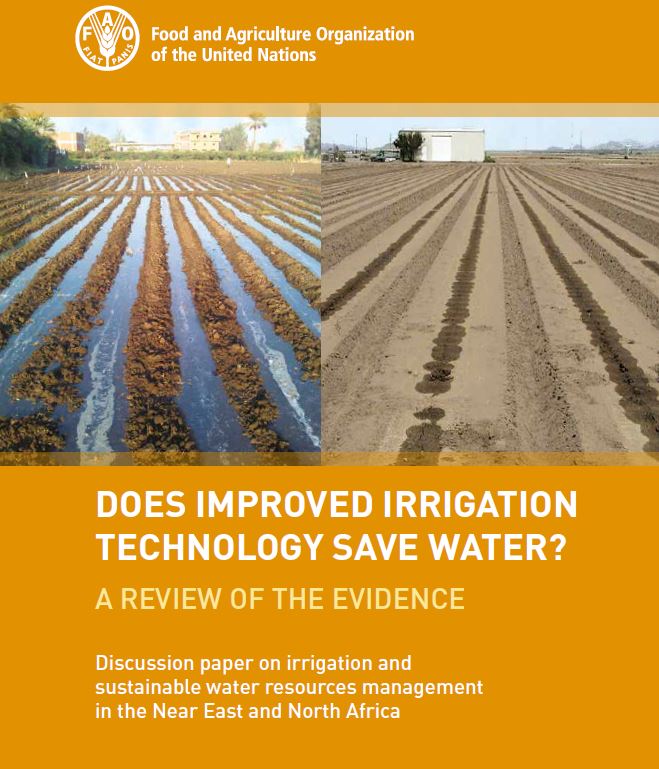DOES IMPROVED IRRIGATION TECHNOLOGY SAVE WATER? A REVIEW OF THE EVIDENCE
Unsustainable water use (over-drafted aquifers, seasonally dry rivers, disappearing lakes and wetlands) is a problem across the world. This is especially true in the NENA region, which includes many of the most water-short countries in the world. These countries have always depended on human interventions to regulate water for food security, domestic and other uses. Historically, these developments were mostly small scale, locally managed and hydrologically independent. These systems were also hydrologically self-regulating, with annual rainfall, runoff and recharge setting the limits to annual use. However, in recent decades the proliferation of large scale storage-based systems and the development of deep tubewell technology have resulted in dramatic increases in water withdrawals and created interdependence and competition across new, mostly unregulated, boundaries—often based on exploitation of non-renewable resources. The governance of these new relationships goes much beyond the scope of traditional institutions.
